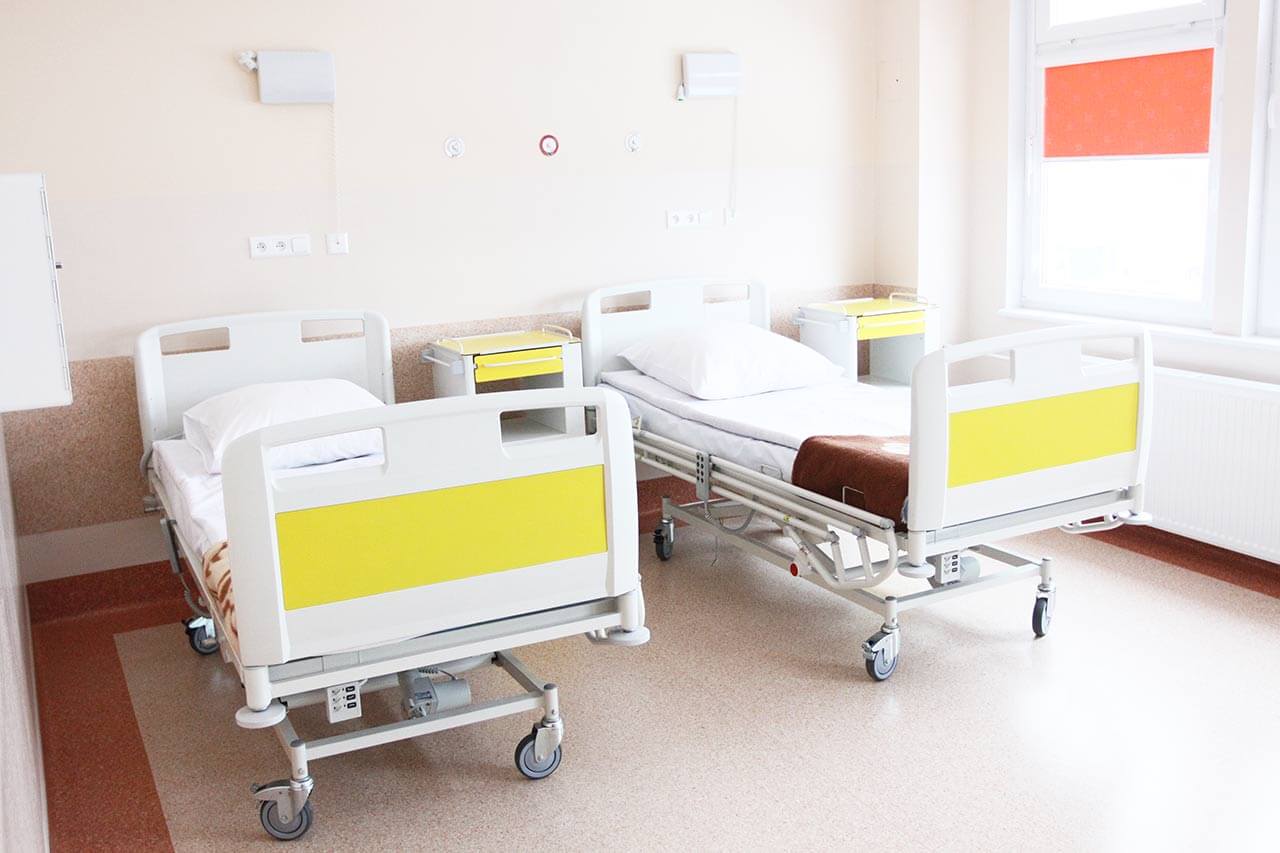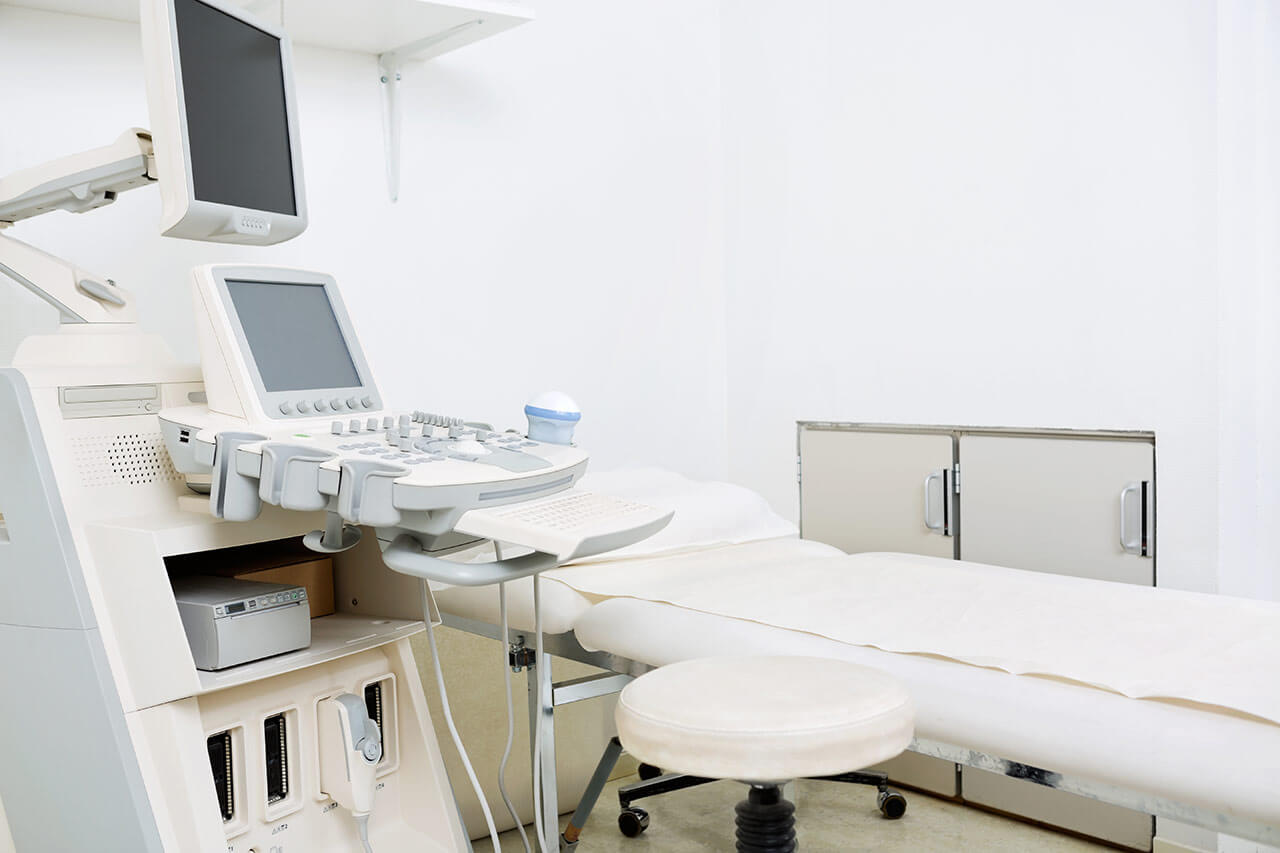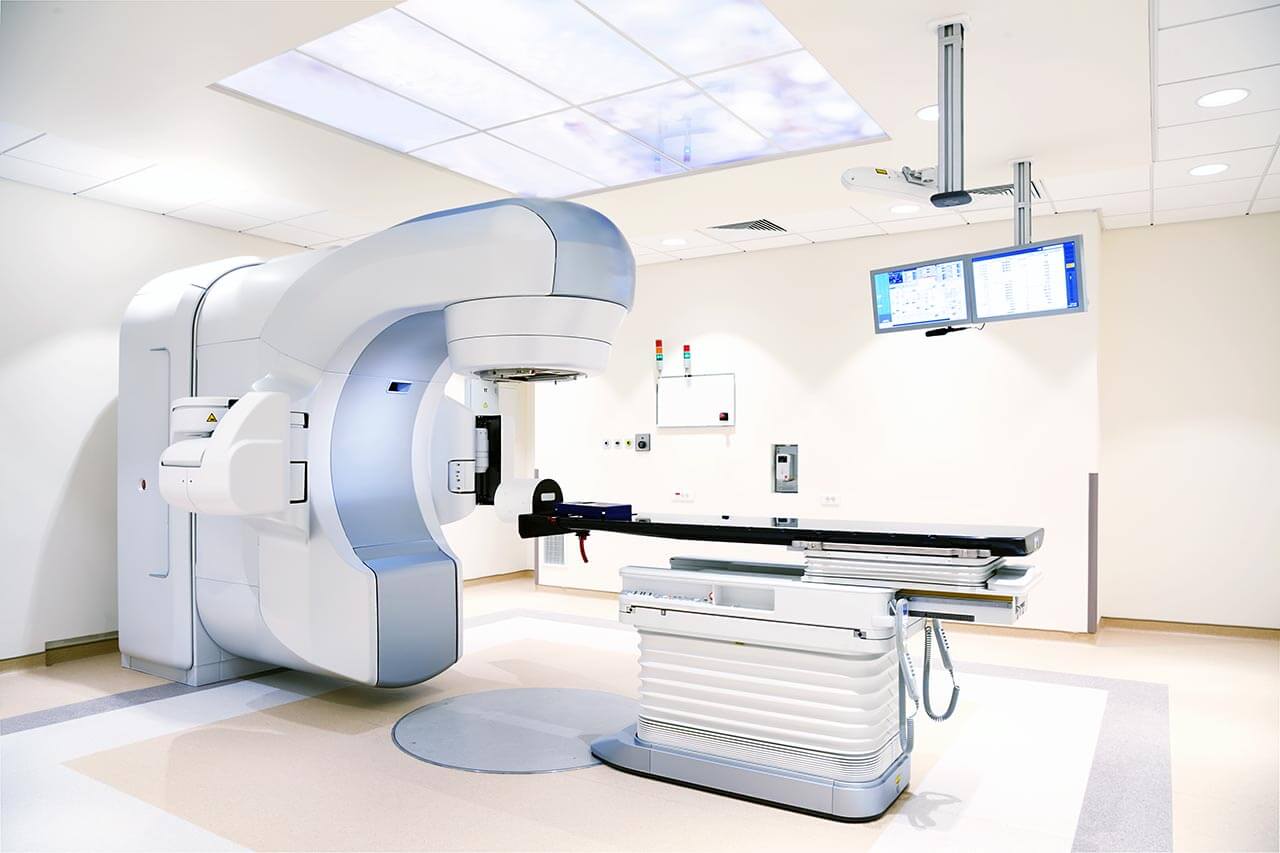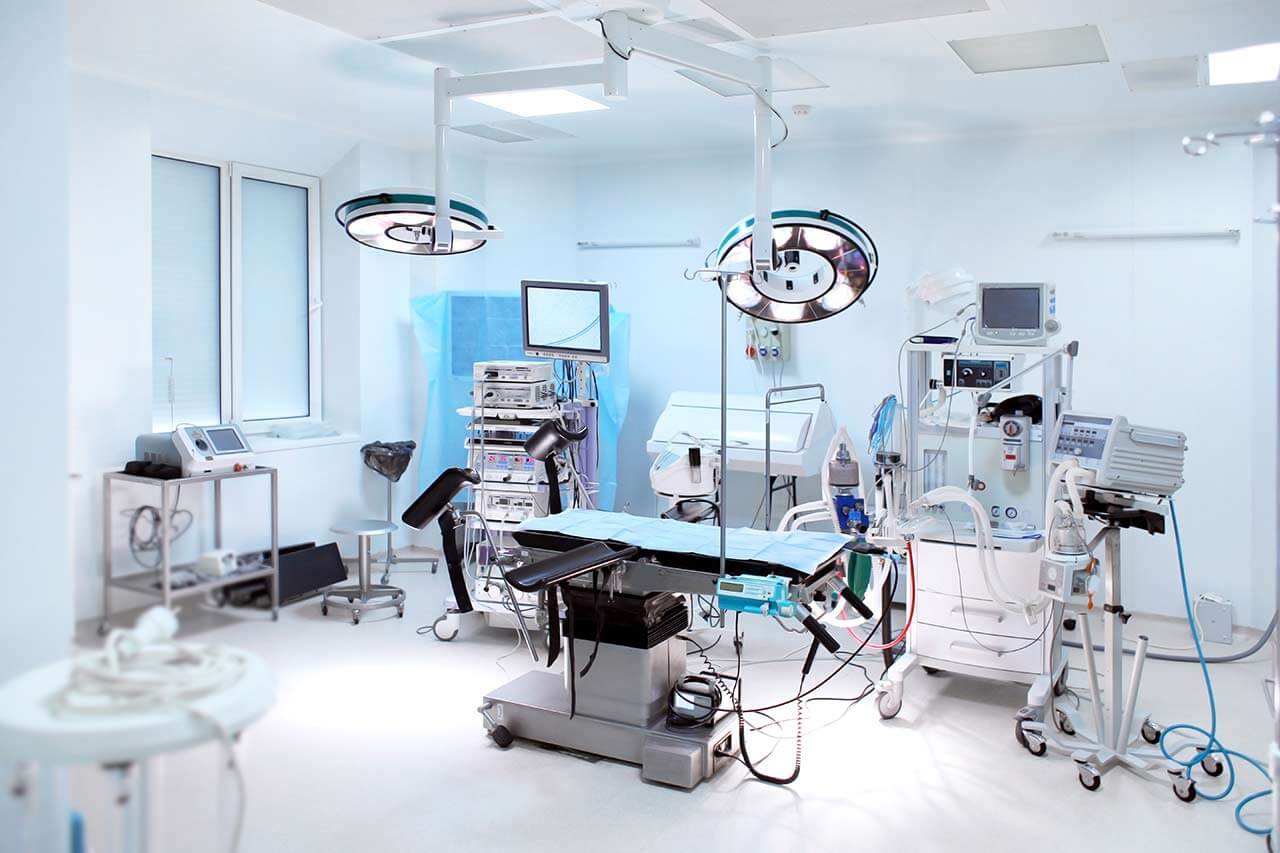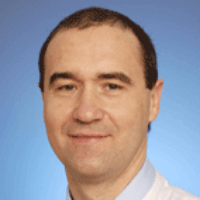
The program includes:
- Initial presentation in the clinic
- clinical history taking
- review of medical records
- physical examination
- laboratory tests:
- complete blood count
- general urine analysis
- biochemical analysis of blood
- TSH-basal, fT3, fT4
- tumor markers
- inflammation indicators (CRP, ESR)
- indicators of blood coagulation
- abdominal ultrasound scan
- CT scan/MRI or PET-CT of abdomen
- preoperative care
- cytoreductive surgery to remove visible tumors
inside the abdomen and HIPEC - histological and immunohistochemical
examination of removed tissues - symptomatic treatment
- cost of essential medicines
- nursing services
- stay in the hospital with a full board
- accommodation in a 2-bedroom ward
- elaboration of further recommendations
How program is carried out
During the first visit, the physician will conduct a clinical examination and go through the results of the available diagnostic tests. After that, you will undergo the necessary additional examination, such as the assessment of liver and kidney function, ultrasound scan and tomography of the abdominal organs. Based on the results of the examination, the physician will choose the surgical technique and the type of anesthesia. After that, preparation according to the preoperative standard will start.
Cytoreductive surgery begins with general anesthesia. The intervention is performed as open surgery, i.e. through the incision in the anterior abdominal wall, so that the surgeon can carefully examine the peritoneum and the surface of the abdominal organs. The surgeon removes affected by the malignant process areas of the peritoneum and metastases in other internal organs. This stage of the operation can take several hours, since the overall effectiveness of the treatment depends on the completeness of the malignant tissues removal.
At the next stage of the operation, the surgeon inserts several catheters into the abdominal cavity. Through the catheters, a heated solution of a chemotherapy drug is pumped inside. The special system maintains the required temperature (42-43 degrees Celsius), pressure and circulation rate of the medicinal solution. The solution mechanically flushes out blood clots and remnants of malignant tissues, and a heated chemotherapy drug destroys micrometastases in internal organs and lymph nodes (micrometastases can’t be detected by the naked eye).
After 1-1.5 hours, the chemotherapy drug is removed from the abdominal cavity and the abdominal cavity is washed with saline. After that, the surgeon removes the catheters and sutures the incision of the anterior abdominal wall.
After the completion of the operation, you will be transferred to the ward of the intensive care unit, under the round-the-clock supervision of doctors and nurses. In 1-3 days after the operation, your drains will be removed and you will be transferred to a regular ward for further recovery. The whole treatment takes 10-12 days on average.
Finally, the attending physician will evaluate the results of control examinations, schedule the date of discharge from the hospital and give you detailed recommendations for further follow-up and treatment.
Required documents
- Medical records
- X-ray examination, MRI/CT scan (if available)
- Pleural biopsy (if available)
Service
You may also book:
 BookingHealth Price from:
BookingHealth Price from:
About the department
According to the Focus magazine, the Department of Adult and Pediatric Cardiothoracic Surgery at the University Hospital Duesseldorf ranks among the top German departments specializing in the surgical treatment of diseases of the cardiovascular system!
The department offers the full range of surgical treatment of diseases of the heart, lungs, and other thoracic organs. The department has a long and successful history. It has performed more than 50,000 heart surgeries since 1938. The first open-heart surgery under hypothermia, the first heart valve replacement surgery, as well as the first pacemaker and cardioverter-defibrillator implantations in Germany should be mentioned among the department’s achievements. The department is headed by Prof. Dr. med. Artur Lichtenberg.
The department is equipped with the state-of-art medical equipment, operating rooms, and intensive care units in order to help patients in critical condition and postoperative follow-up care. The department's doctors carefully monitor patient’s state of health, carry out all types of researches before, during and after surgery.
The service range of the department includes:
- Cardiac surgery
- Coronary artery bypass grafting on a beating heart (without connecting a patient to a heart-lung machine) with the help of total arterial revascularization using a no-touch technique
- Heart valve surgery
- Minimally invasive techniques (for example, lateral minithoracotomy, Z-shaped sternotomy, transapical aortic valve replacement)
- Aortic valve implantation using the catheter techniques (without connecting the patient to the heart-lung machine)
- Thoracic aortic surgery (thoracic aneurysms and aortic dissection)
- Heart failure treatment
- Drug therapy
- Implantation of a special biventricular pacemaker (cardiac resynchronization)
- Implantation of mechanical circulatory support systems
- Artificial heart implantation
- Implantation of devices for heart rhythm normalization
- Implantation and replacement of single-chamber, two-chamber and biventricular pacemakers
- Implantation and replacement of single-chamber, two-chamber and biventricular ICDs
- Revisions and systemic replacement of pacemakers and ICDs
- Removal of probes
- Implantation of the isolated epicardial probe (atrium, right and left ventricles)
- Implantation of pacemakers and ICDs in children and adolescents
- Implantation of cardiac contractility modulation systems
- Event recorder implantation
- Minimally invasive surgical therapy in atrial fibrillation
- Various neurostimulators (for example, stimulation of the glomus in the treatment of arterial hypertension)
- Implantation of pacemakers and ICDs in combination with other heart interventions (for example, with coronary artery bypass grafting, valve operations)
- Thoracic surgery
- Tissue sampling for the further examination (biopsy)
- Surgical treatment of malignant and benign tumors of the lungs, thoracic wall, mediastinum, and diaphragm
- Surgical removal of lung metastases
- Surgical treatment of thoracic infections
- Surgical and conservative treatment of thoracic injuries
- Minimally invasive thoracic interventions
- Other medical services
Curriculum vitae
- 1993 - 1995 Intern, Department of Cardiothoracic Surgery at the University Hospital Tuebingen.
- 1995 Doctoral thesis defense, Department of Cardiology, University of Tuebingen.
- 1995 - 1997 Assistant Physician, Department of Cardiothoracic Surgery, Heart Center Lahr/Baden.
- 1997 - 2000 Assistant Physician, Department of Cardiothoracic Surgery, Hannover Medical School.
- 2000 Medical Specialist in Cardiac Surgery.
- 2000 - 2001 Acting Head of the Department of Cardiothoracic Surgery, Hannover Medical School.
- 2001 - 2006 Full-time Senior Physician in the Department of Cardiothoracic Surgery, Hannover Medical School.
- 2002 - 2003 Leading Senior Physician of the Department of Cardiothoracic and General Surgery, Oststadtkrankenhaus Hospital, Hannover.
- 2004 - 2006 Head of the Group on Tissue Engineered of the Heart Valves, Hannover Medical School.
- 2007 Venia Legendi in Cardiac Surgery, Hannover Medical School.
- 2006 - 2009 Deputy Head of the Department and Leading Senior Doctor of the Department of Cardiac Surgery at the University Hospital Heidelberg.
- 2006 - 2009 Head of the Artificial Heart Program, Department of Cardiac Surgery at the University Hospital Heidelberg.
- 2006 - 2009 Head of the Section of Minimally Invasive Cardiac Surgery, Department of Cardiac Surgery at the University Hospital Heidelberg.
- 2006 - 2009 Head of the Working Group on Cardiovascular, Stem Cell and Tissue Engineering, Department of Cardiac Surgery at the University Hospital Heidelberg.
- Since 2008, Chairman of the Working Group on Tissue Engineered of Heart Valves of the German Society for Thoracic and Cardiovascular Surgery (DGTHG).
- 2008 Habilitation, Medical Faculty of the University of Heidelberg.
- 02 - 07/2009 W3 Professor and Head of the Department of Cardiothoracic Surgery at the University Hospital Jena.
- 2009 Appointment as W3 Professor of Cardiac Surgery, Heinrich Heine University Duesseldorf.
- Since 2009, Head of the Department of Adult and Pediatric Cardiothoracic Surgery at the University Hospital Duesseldorf.
Photo of the doctor: (c) Universitätsklinikum Düsseldorf
About hospital
According to the authoritative Focus magazine, the University Hospital Duesseldorf ranks among the top Germany hospitals!
The hospital is an excellent example of a combination of high-quality health care, research and teaching activities. With more than 50,000 inpatients and about 300,000 outpatients every year, the hospital is one of the largest and most prestigious medical institutions in Germany and Europe.
Modern, safe and sparing diagnostic and therapeutic methods guarantee effective treatment of various diseases and their consequences. All therapeutic processes are based on an interdisciplinary approach, which provides comprehensive medical care and optimal treatment result. Obviously, one of the key roles in the successful clinical practice of the medical institution is played by a highly qualified medical personnel, which consists of the best world-class doctors. The hospital also has a special advantage due to the structured equipment with the innovative medical technologies.
The hospital presents almost all fields of modern medicine. Special attention should be given to such focuses as oncology and hematology, stem cell transplantation, neurosurgery and neurology, urology, obstetrics and gynecology, hepatology, kidney transplantation, vascular surgery, cardiac surgery, pediatric surgery, pediatric oncology, etc.
In addition to the outstanding quality of medical services, the hospital guarantees each patient an attentive care, friendly atmosphere, as well as sensitive and respectful attitude.
Photo: (с) depositphotos
Accommodation in hospital
Patients rooms
The patients of the University Hospital Duesseldorf live in comfortable single, double and triple rooms. The patient rooms are made in bright colors and modern design. The room furnishing includes an automatically adjustable bed, a bedside table, a wardrobe, a telephone, a multimedia device (TV, radio, Internet access), a table and chairs for receiving visitors. To use the phone and multimedia device, the patient should have a special chip card, which can be purchased at the reception. In the pediatric departments multimedia device can be used for free.
Meals and Menus
The patients of the hospital are offered a varied, tasty and healthy diet. Every day there are three menus to choose from for adults and four menus to choose from for children, while it is possible to develop an individual menu. When pre-ordering, the international patients may have dishes of various cuisines of the world, for example, Asian and African cuisine. If a patient needs a diet in accordance with the clinical indications, he will be provided with a special diet menu, including drinks.
Every day, the nurses inform the kitchen workers about the patient wishes using an electronic data processing system. Immediately before serving food, there are printed special cards, which indicate for which patient this or that dish is intended.
Also, the hospital houses a cafeteria with a rich selection of delicious, healthy dishes, snacks and drinks.
Further details
Standard rooms include:
Religion
Christian priests are available for the patients at any time. Representatives of other religions may be requested at any time.
Accompanying person
Your companion may stay with you in your room or at a hotel of your choice during the fixed program.
Hotel
You may stay at the hotel during the outpatient program. Our employees will support you for selecting the best option.
The hospital offers a full range of laboratory tests (general, hormonal, tests for infections, antibodies, tumor markers, etc.), genetic tests, various modifications of ultrasound scans, CT scans, MRI and PET / CT, angiography, myelography, biopsy and other examinations. Treatment with medications, endoscopic and robotic operations, stereotaxic interventions is carried out here, modern types of radiation therapy are also used. The hospital offers patients all the necessary therapeutic techniques.
- Dermatosurgery
- Skull base surgery
- Gastric bypass and bandage
- Removal of lung metastases
- Interventions on the spine
These are skin cancer (including melanoma), head and neck tumors, pathological changes in the chest (including funnel chest), obesity, liver diseases, HIV and other infectious diseases, varicose veins, aortic aneurysm, carotid artery stenosis, joint diseases and other pathologies.
- Dermatology
- Oncology
- Otorhinolaryngology
- Endocrinology and diabetology
- Orthopedics and traumatology
Over 800 highly qualified physicians work at the hospital.
